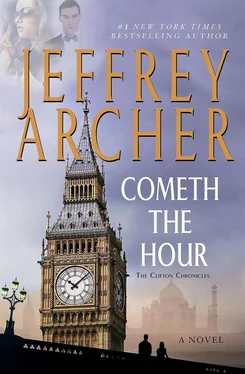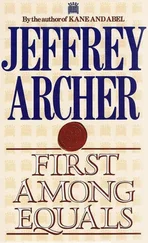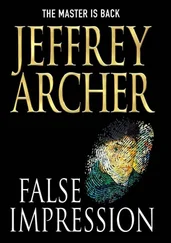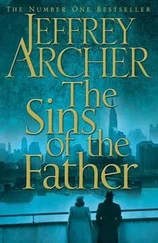“For Anatoly, there was no escape, except when he returned home each night to be with his beloved wife, Yelena. In secret, he began working on a project that was to become a feat of physical endurance and rigorous scholarship, the like of which few of us could begin to comprehend. While he worked in the Kremlin by day, by night he set down his experiences on paper. He learned the text by heart, then destroyed any proof his words had ever existed. Can you begin to imagine what courage it took to abandon his lifelong ambition to be a published author for an anonymous book that was stored in his head?
“And then Stalin died, a fate that even dictators cannot escape. At last Anatoly believed that the book he had worked on for so many years could be published, and the world would discover the truth. But the truth was not what the Soviet authorities wanted the world to discover, so even before Uncle Joe reached the bookshops, every single copy was destroyed. Even the press on which it had been printed was smashed to pieces. A show trial followed, when the author was sentenced to twenty years’ hard labor and transported to the depths of Siberia to ensure that never again could he cause the regime any embarrassment. Thank God that Samuel Beckett, John Steinbeck, Hermann Hesse and Rabindranath Tagore, all winners of the Nobel Prize for literature, weren’t born in the Soviet Union, or we might never have been able to read their masterpieces.
“How appropriate that the Swedish Academy has chosen Anatoly Babakov to be the recipient of this year’s award. Because its founder, Alfred Nobel,” Harry paused for a moment to acknowledge the garlanded statue of Nobel that rested on a plinth behind him, “wrote in his will that this prize should not be awarded for literary excellence alone, but for work that ‘embodies an ideal.’ One wonders if there can ever have been a more appropriate recipient of this award.
“And so we come together this evening to honor a remarkable man, whose death will not diminish his life’s achievement, but will only help to ensure that it will endure. Anatoly Babakov possessed a gift that we lesser mortals can only aspire to. An author whose heroism will surely survive the whirligig of time, and who now joins his immortal fellow countrymen Dostoyevsky, Tolstoy, Pasternak and Solzhenitsyn as their equal.”
Harry paused, looked up at the audience, and waited for that moment before he knew the spell would be broken. And then, almost in a whisper, he said, “It takes a heroic figure to rewrite history so that future generations might know the truth and benefit from his sacrifice. Quite simply, Anatoly Babakov fulfilled the ancient prophecy: cometh the hour, cometh the man.”
The whole audience rose as one, assuming that the speech had ended. Although Harry continued to grip the sides of the lectern, it was some time before they realized he had more to say. One by one they resumed their seats, until the acclamation of the throng had been replaced by an expectant silence. Only then did Harry take a fountain pen from an inside pocket, unscrew the cap and hold the pen high in the air. “Anatoly Yuryevich Babakov, you have proved to every dictator who ever ruled without the people’s mandate that the pen is mightier than the sword.”
King Carl Gustaf was the first to rise from his place, take out his fountain pen and hold it high in the air before repeating, “The pen is mightier than the sword.” Within moments, the rest of the audience followed suit, as Harry left the stage and returned to his seat, almost deafened by the prolonged cheers that accompanied him. He finally had to lean forward and beg the King to sit down.
A second cheer, every bit as tumultuous, followed when Yelena Babakova stepped forward on her husband’s behalf to accept the Nobel medal and the citation from the King.
Harry hadn’t slept the night before because of the fear of failure. He didn’t sleep that night because of the triumph of success.
The following morning, Harry, Emma and Yelena joined the King for breakfast.
“Last night was a triumph,” said Carl Gustaf, “and the Queen and I wondered if you’d like to spend a few days in Stockholm as our guests. I’m assured this is the best hotel in town.”
“That’s very kind of you, sir,” said Emma, “but I’m afraid I have a hospital to run, not to mention the family business.”
“And it’s time I got back to William Warwick,” said Harry. “That is, if I’m still hoping to meet my deadline.”
There was a gentle tap on the door and a moment later the equerry appeared. He bowed before he spoke to the King.
Carl Gustaf raised a hand. “I think, Rufus, it might save time if you were to speak in English.”
“As you wish, sir.” He turned to Harry. “I’ve just had a call from Sir Curtis Keeble, the British Ambassador in Moscow, to say that the Russians have relented and granted you, your wife and Mrs. Babakova twenty-four-hour visas so you can attend Laureate Babakov’s funeral.”
“That’s wonderful news,” said Emma.
“But as always with the Russians, there are caveats,” the equerry added.
“Like what?” said Harry.
“You will be met off the plane by the ambassador and driven directly to St. Augustine’s church on the outskirts of Moscow, where the funeral will take place. Once the service is over, you must go straight back to the airport and leave the country immediately.
Yelena, who hadn’t spoken until then, simply said, “We accept their terms.”
“Then you’ll need to leave now,” said the equerry, “because the only flight to Moscow today departs in an hour and a half.”
“Have a car ready to take them to the airport,” said Carl Gustaf. Turning to Yelena, he added, “Your husband could not have been better represented, Mrs. Babakova. Please return to Stockholm as my guest whenever you wish. Mr. Clifton, Mrs. Clifton, I will be eternally in your debt. I would make a speech, but as you have a plane to catch, it would be neither adequate nor appropriate. Hang not a thread on protocol, and be gone .”
Harry smiled and bowed for a different reason.
The three of them returned to their rooms to find their cases already packed, and a few minutes later they were being escorted to a waiting car.
“I could get used to this,” said Emma.
“Don’t,” said Harry.
When Yelena walked into the airport on Harry’s arm, passengers took out their pens, biros, pencils and held them in the air as she passed by.
During the flight to Moscow, Harry was so exhausted he finally fell asleep.
Virginia wasn’t surprised to receive a call from Adrian Sloane. He didn’t waste any time getting to the point.
“You probably know that the board have asked me to take over as chairman of Mellor Travel while Desmond is... away, if you’ll forgive the euphemism.”
Not with his blessing, Virginia was about to say, but she kept her counsel.
“Miss Castle tells me you’re the only other person who knows the code to Desmond’s safe.”
“That is correct.”
“I need to get hold of some papers for the next board meeting. When I visited Desmond last week at Ford, he told me that they were in the safe and you could give me the code.”
“Why didn’t he give it to you himself?” asked Virginia innocently.
“He didn’t want to risk it. Said there were listening devices in his cell that could pick up every word we said.”
Virginia smiled at his simple mistake. “I’ll be happy to give you the code, Adrian, but not until you’ve paid me the twenty-five thousand pounds you promised to help cover my legal bills when I sued Emma Clifton. A drop in the ocean, if I recall your exact words.”
“Give me the code, and I’ll transfer the full amount to your account immediately.”
Читать дальше












